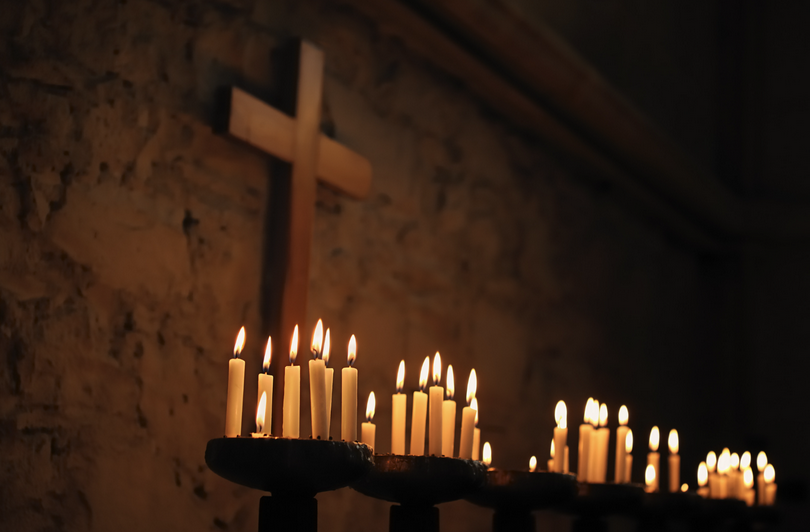On Easter Sunday, an urban church in northern China gave a sermon titled "By Gentle Powers," highlighting the deep connection between "suffering and resurrection" through the testimonies of a church member and the German Protestant theologian Dietrich Bonhoeffer during World War II.
"Resurrection Dream" of a Christian Cancer Fighter: Finding Peace Through Death
Preacher Ma began the sermon by sharing the faith journey of a Christian woman who was diagnosed with advanced lung cancer just five months after marrying at the age of 28. Despite the cancer later spreading to her brain, the woman remained steadfast in her service to the church's "Life Care" ministry. Although she passed away in March after a decade-long battle, church coworkers testified that she exhibited an "extraordinary calm and peace" in her final days.
Remarkably, following her passing, several believers, including Preacher Ma, dreamed of the woman, coincidentally seeing her with a radiant and joyful expression. They affirmed it must reflect her resurrected state. Ma reflected on a "fiery furnace" she once dreamt of between herself and the woman and how that image had prompted deeper contemplation on the meaning of life and hardship.
Bonhoeffer's "Prison Temple": The Spiritual Legacy on the 80th Anniversary of His Martyrdom
As the year 2025 marks the 80th anniversary of Bonhoeffer's martyrdom, Ma centered her Easter message on "By Gentle Powers," a hymn written by German theologian Dietrich Bonhoeffer during his imprisonment.
Born in Germany in 1906, Bonhoeffer received a Bible at the age of 12 from his older brother, who had died in World War I. Bonhoeffer then kept that Bible with him throughout his life. He entered university at 17 and became a lecturer in theology at the University of Berlin by the age of 25. In 1933, as Adolf Hitler rose to power and anti-Jewish persecution intensified, some Germany churches aligned themselves with the Nazi regime. Though not Jewish himself, Bonhoeffer became a key founding member and prominent voice of the Confessing Church, which openly resisted Nazi ideology. During World War II, despite being offered to leave for the United States, he chose to remain in Germany, continuing his resistance against the persecution of Jews.
Bonhoeffer was arrested in April 1943, just three months after his engagement. In 1944, he wrote this poem passed down through generations, "Von guten Mächten" (By Gentle Powers), before being executed on April 9, 1945. In his collection Letters and Papers from Prison, he described prison as a "mobile temple" and spoke of suffering as a womb for new life. His life and writings have continued to inspire generations.
Ma went on to explore the metaphor of the "fiery furnace," describing it as a spiritual training ground for Christians. She emphasized that to become God's glorious instruments, believers must undergo a process of kneading, molding, and even being "baked" at extreme temperatures. Pain, she explained, is the cost of sin, and Christians must be thankful for Christ's presence in their suffering. She encouraged believers to follow Jesus' example of obedience in the midst of hardship, even though he is the Son of God.
Quoting Bonhoeffer's view of prison as a womb nurturing new life, Ma urged the congregation to focus on the ultimate good that comes from service, even when the process is as painful as growth itself. Citing "By Gentle Powers"—"When the silence thus engulfs us, so let us hear that vibrant sound"—she reminded them that only when hearts are still can Christians truly hear God's abundance, comfort, guidance, and discipline.
Preacher Ma further explained that in the process of resurrection, the soul is awakened first, followed by the surrender of the flesh through the Lord's help. She likened the sinful nature of the flesh to a tumor. When God the Father sees His children suffering because of sin, He intercedes with wordless groans, just as parents might weep helplessly outside an operating room. Although His guidance may be beyond human understanding, God leads His children through the darkest valleys toward their transformation, ultimately shaping them into His glorious instruments. In this process, believers come to experience true life transformation and grow into the fullness of Christ.
Ma also referenced Bonhoeffer's final words before his execution: "This is the end—for me, the beginning of life." He was 39 years old at the time of his death, with his mother still alive and his fiancée waiting for his return. Yet, Bonhoeffer had already glimpsed eternity while on earth. His poem "By Gentle Powers" has been sung for decades, with many recognizing it as one of the greatest spiritual legacies of the 20th century. Ma described it as a "spiritual filling station" from God. Though Bonhoeffer died as a prisoner, she emphasized, he stood as one of God's glorious instruments, proclaiming the power of divine goodness even unto death.
Originally published by the Christian Times
- Edited and translated by Poppy Chan












